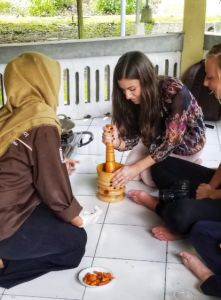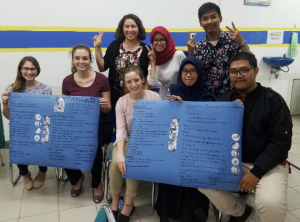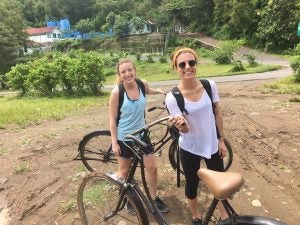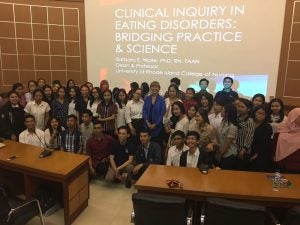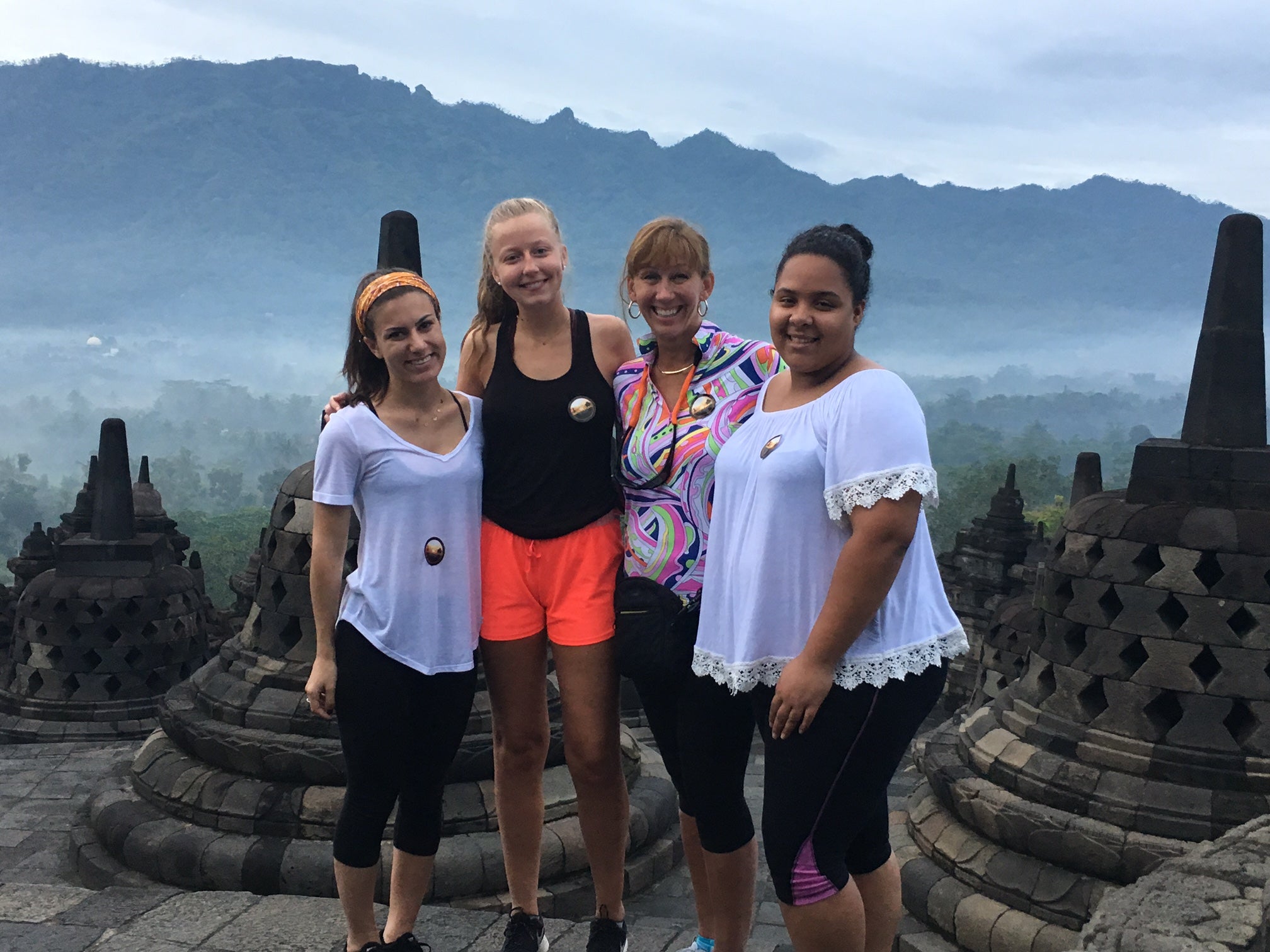Colleges of nursing, pharmacy and health sciences collaborate on J-Term course
URI students from across all three colleges in the Academic Health Collaborative got a firsthand look at health care overseas, helped educate residents on preventive health measures and experienced some of the local culture during a J-Term trip to Indonesia.
Deans Gary Liguori (health sciences), Paul Larrat (pharmacy) and Barbara Wolfe (nursing) accompanied the students on the trip organized by Pharmacy Professor Nicole Asal. The group visited Bali, Jakarta and Yogyakarta, touring community health centers, conducting blood pressure screenings and relaying information on stroke and asthma prevention. The students collaborated with Indonesian pharmacy students and recent graduates from Universitas Islam Indonesia to create presentations 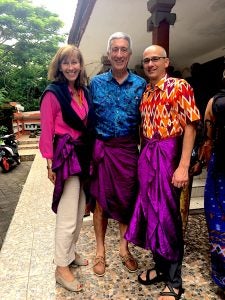 regarding stroke prevention and education.
regarding stroke prevention and education.
“The students were committed to making their time over there valuable,” Larrat said. “They were willing to enmesh themselves in Indonesian culture, which really enhanced their experience. It was a great cultural exchange and a really valuable learning experience for them and us.”
The students got a taste of the local culture thanks to Brook Ross, a 1993 graduate of URI who is founder and managing director of Indonesia Education Partnerships and lives in Indonesia and was able to give them a local’s tour of community farms and villages. They also learned how to make traditional herbal medicine drinks, (\known as jamu, and were interviewed for local news reports.
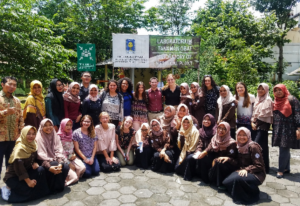
“We had an excellent community outreach project in which URI students worked with locals, were received by patients at three different community health centers and one rural community meeting,” Asal said. “The students have learned a great deal not only about global health issues but also about each other’s professions and the culture of Indonesia. I cannot tell you how proud I am of their efforts and impact on this community.”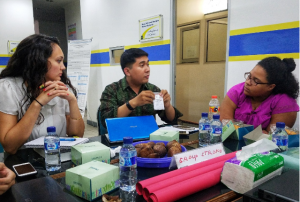
“It was a great opportunity for students to learn by experiencing the world,” Wolfe added. “The students are a fabulous interdisciplinary group who learned from each other and from those they encountered.”
While in Indonesia, the deans met with the Ministry of Health to discuss health challenges in the country and ways URI may be able to help, and Wolfe gave a presentation on “Clinical Inquiry in Eating Disorders: Bridging Practice & Science” before the Udayana University Department of Nursing.
The trip was an opportunity to begin a lasting relationship with Indonesia that can benefit both the country and the University, Liguori said. In addition to stroke and asthma prevention, Indonesian health leaders are interested in improving speech pathology offerings. With just one speech clinic in the country, Indonesia could benefit by partnering with URI’s advanced speech and hearing centers, Liguori said. It’s just one of the ways the University can expand its educational and experiential offerings to students while making an impact globally.
“They have community health offerings; the problem is getting people access to those. They want to connect with us here to help publicize and distribute their health data,” Liguori said, noting the opportunity such a partnership holds for the Indonesia people and health workers, as well as URI students. “The students got a really great experience out of it. I would like to see this turned into more opportunities. It’s a good investment on the University’s part.”
